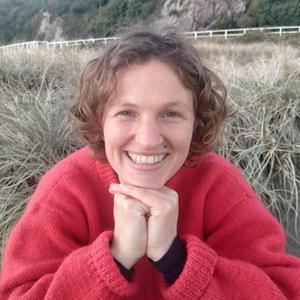Rematriating our homes and food systems
Jessica is a kaupapa Māori researcher, author and advocate as well as being a farmer. She is the director and founding trustee of the Papawhakaritorito Charitable Trust which is all about decolonising our food systems and restoring indigenous food sovereignty. She lives with her wife Jo Smith (Waitaha, Kāti Māmoe, Kāi Tahu) on twelve acres of beautiful whenua in the foothills of the Tararua with the Remutaka and Orongorongo behind and Pākuratahi Forest Park nearby. Jessica was involved in establishing Hua ParaKore, a kaupapa Māori system and framework for growing kai. It’s sometimes referred to as Māori organics, but it’s much more than just looking after the soil and our health. Hua Parakore is about reweaving the intricate web of relationships that connect us with each other and with our cultural and spiritual landscapes.“When I think about Māori food sovereignty,” Jessica says, "I think about food as whanaunga. Food is our relation. It comes from our cultural and spiritual landscapes, from the deities, Tāne Mahuta of the forest, Haumia-tiketike, Hineahuone, deity of soil, Papatūānuku and Ranginui. We are connected to those landscapes through our whakapapa of being the younger sibling, the youngest in the order.”Jessica and Jo are storytellers, activists, researchers and gardeners. Through their work with the Trust they connect dots across the food system, hold hui and bring growers together to amplify those spaces. At their farm they put the ideas into practice, growing food and restoring the native forest to re-cloak Papatūānuku.Over the past decade, Jessica has also worked extensively in the Māori housing sector, leading the Building Better Homes, Towns and Cities National Science Challenge, as their Director Māori and helping to build Māori research and capability in the Māori housing area. Along with Jo, she edited the book Kāinga tahi, Kāinga rua, which gathers together Māori experiences and aspirations for housing. In our conversation, Jessica weaves together the kaupapa of housing and food sovereignty, showing how deeply connected they are. She talks about how colonial capitalism not only separated Māori from their ancestral kāinga, it has broken up family units, destroyed indigenous foodways and waterways and dismanteled the fabric of communities. She speaks about how current policy-settings create impossible barriers for Māori wanting to live intergenerationally and the pain of watching our current government pull out supports for papakāinga among many other things. Her hope and aspiration lies in Māori being empowered to take the lead in finding solutions. Her vision is for food to be the hub and heart of our communities - how we grow it and our relationship with the soil and seed. “I have a vision for indigenous food systems in Aotearoa”, she says, “that are thriving, intergenerational, connected to people in place, that are hua parakore, and that are creating a wellbeing of mauri-rich, abundant kai for people… My vision is for beautiful, healthy people, lands and soils, where we have sovereignty over ourselves.”Some helpful links: https://www.papawhakaritorito.com/https://jessicahutchings.org/ Get full access to The Good Energy Project at thegoodenergyproject.substack.com/subscribe
